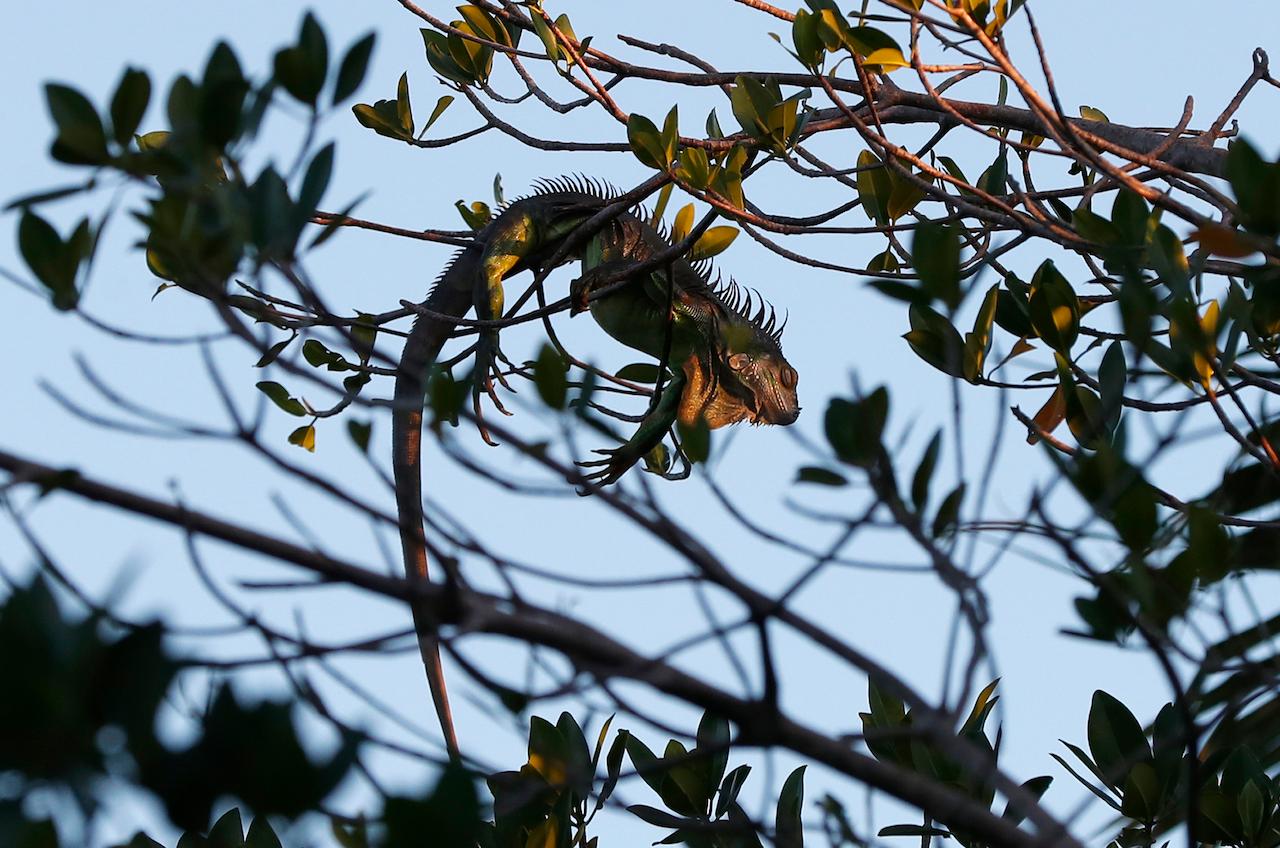Florida weather forecast: chilly with a chance of iguanas
When the temperature drops below four degrees Celsius, the cold-blooded lizards are immobilised and fall from the trees they live in.
Just In
Known for its warm, balmy winters, Florida is expecting an unusually chilly Christmas this year, and with that comes a phenomenon peculiar to the Sunshine State: falling iguanas.
“Low temperatures in the 30s/40s and falling iguanas are possible. Keep up with forecast changes and stay warm!” the National Weather Service’s Miami office said on Twitter Monday.
That means residents of southern Florida will have to swap their shorts and T-shirts for warmer attire for a few days and keep an eye on the sky for frozen reptiles falling from the palm trees.
When the temperature drops below four degrees Celsius, the cold-blooded lizards are immobilised and fall from the trees they live in, the forecasters said.
The creatures do not die from the cold, but simply remain unable to move until the temperatures rise again.
And the danger of being hit by a frozen reptile are real, given how many of the invasive species now live in Florida, devastating the native flora.
Last year local authorities actually asked people to kill as many of the reptiles as they could, though preferably humanely.
In 2018, the southeastern state already experienced iguana showers in a cold snap, astounding the population.
Some locals tried warming up the stricken lizards with blankets, took them home or put them in their cars to resuscitate them, something the authorities strongly advise against.
Once they are defrosted, the reptiles may try to defend themselves and become aggressive.
Subscribe to our newsletter
To be updated with all the latest news and analyses daily.
